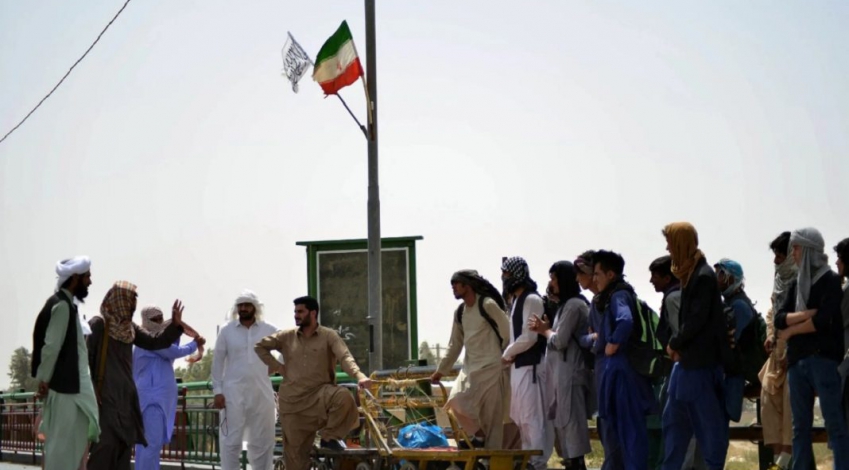Sunday 28 May 2023 - 12:09
Story Code : 406391
Iran closes major trade route with Afghanistan after deadly clashes
Iran closes the Milak border crossing with Afghanistan, a major trade route, �until further notice,� following an exchange of heavy gunfire between Iranian border guards and Taliban forces.
Ayoub Kord, the director of the Department of Roads and Transport in Sistan and Baluchestan Province, said on Saturday that economic exchanges through the crossing would be suspended due to the deadly fighting.
On Saturday, the Taliban opened fire on the Iranian side at the Sasouli border post, promoting the Iranian forces to respond, IRNA reported.
Two Iranian border guards lost their lives in the clashes, which inflicted heavy damage on the Taliban, according to the officials.
Tensions have been on the rise between Tehran and Kabul over Afghanistan�s violations of a 1973 treaty on sharing water from the Helmand River with Iran.
In 1939, the Iranian and Afghan governments signed a treaty on sharing the river�s water, but the Afghans failed to ratify it. In 1973, the two sides signed an accord that accepted the flow of water into Iran at 22 cubic meters per second or 820 million cubic meters of water a year with an option for Iran to purchase an additional four cubic meters per second in �normal� water years.
However, the agreement was neither ratified nor fully implemented due to political developments, including a 1973 coup in Afghanistan, the Soviet occupation of Afghanistan that same year, and finally the rise of the Taliban in 1995.
With Afghanistan at war for the past 40 years, the supply has been erratic. Severe drought across much of Afghanistan is spurring plans to build new dams, aggravating tensions with Iran. Tehran had already voiced concern that the huge Indian-financed Salma Dam in western Herat province, inaugurated in 2016, would see its water supplies reduced.
At the center of the dispute, however, is the Helmand River, which runs through much of Afghanistan from its source in the mountains north of Kabul, feeding the Sistan wetlands in the border regions of the two countries.
By Iran Front Page
# Tags











